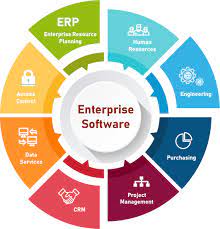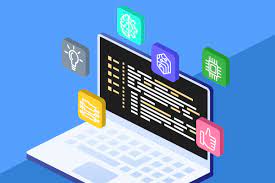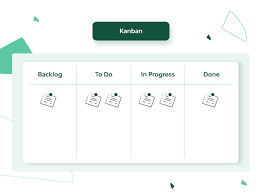The Power of DevOps in Software Development
In the world of software development, DevOps has emerged as a game-changer, revolutionizing the way teams collaborate and deliver high-quality software products. DevOps, which stands for Development and Operations, is a set of practices that combines software development (Dev) with IT operations (Ops) to shorten the system development life cycle and provide continuous delivery of high-quality software.
Key Principles of DevOps
DevOps is built on several key principles that enable teams to work more efficiently and effectively:
- Automation: By automating repetitive tasks such as testing, deployment, and monitoring, DevOps teams can save time and reduce errors.
- Collaboration: DevOps encourages collaboration between developers, operations teams, and other stakeholders to ensure seamless integration throughout the software development process.
- Continuous Integration/Continuous Deployment (CI/CD): CI/CD practices allow for the rapid and consistent delivery of code changes, leading to faster time-to-market for new features and updates.
- Monitoring and Feedback: Monitoring tools provide real-time feedback on system performance, allowing teams to identify issues quickly and make necessary adjustments.
The Benefits of DevOps
Implementing DevOps practices in software development offers a wide range of benefits for organizations:
- Improved Collaboration: DevOps fosters a culture of collaboration and shared responsibility among team members, leading to increased productivity and innovation.
- Faster Time-to-Market: By automating processes and streamlining workflows, DevOps enables organizations to release new features and updates more quickly.
- Better Quality: Continuous testing and monitoring help ensure that software products meet high standards of quality, leading to improved customer satisfaction.
- Increased Efficiency: Automation reduces manual errors and frees up valuable time for team members to focus on strategic tasks.
In Conclusion
In today’s fast-paced digital landscape, embracing DevOps practices is essential for organizations looking to stay competitive and deliver value to their customers. By integrating development and operations processes seamlessly, teams can accelerate innovation, improve efficiency, and drive business growth through high-quality software products.
Understanding DevOps: Key Questions About Software Development and Its Role in Coding
- What are the 7 phases of DevOps?
- Is DevOps full of coding?
- Is DevOps easier than coding?
- Is DevOps the same as software developer?
- What is DevOps in software development?
- Does DevOps do coding?
- What is the DevOps method of software development?
- What is a DevOps software developer?
What are the 7 phases of DevOps?
In DevOps software development, the 7 phases represent a structured approach to the implementation of DevOps practices within an organization. These phases typically include planning, development, testing, integration, deployment, monitoring, and feedback. Each phase plays a crucial role in the software development life cycle, from initial planning and coding to continuous monitoring and feedback loops. By following these 7 phases of DevOps diligently, teams can streamline their processes, improve collaboration between departments, and achieve faster delivery of high-quality software products to meet the evolving needs of their customers.
Is DevOps full of coding?
In the realm of DevOps software development, a common question that arises is whether DevOps is predominantly focused on coding. While coding skills are indeed valuable in DevOps practices, it is essential to understand that DevOps encompasses a broader set of principles and practices beyond just writing code. DevOps emphasizes collaboration, automation, continuous integration, and deployment, among other key aspects. While coding plays a significant role in implementing automation scripts and tools, individuals involved in DevOps also need to possess skills in system administration, infrastructure management, testing, and communication to effectively streamline development and operations processes for efficient software delivery.
Is DevOps easier than coding?
The question of whether DevOps is easier than coding is a common one in the realm of software development. It’s important to understand that DevOps and coding are not mutually exclusive but rather complementary practices within the software development lifecycle. While coding involves writing, testing, and debugging code to create software applications, DevOps focuses on streamlining collaboration between development and operations teams to automate processes, improve efficiency, and deliver high-quality software continuously. Both disciplines require specific skills and expertise, with DevOps emphasizing a broader understanding of the entire software delivery pipeline. Ultimately, the complexity of each practice depends on individual preferences, experiences, and goals within the context of software development projects.
Is DevOps the same as software developer?
In the realm of software development, it is important to distinguish between DevOps and a software developer. While both roles are crucial in the software development lifecycle, they serve different purposes. A software developer focuses on writing code and creating applications, while DevOps encompasses a set of practices that aim to streamline collaboration between development and operations teams to achieve continuous delivery of high-quality software. DevOps emphasizes automation, collaboration, and efficiency in the software development process, bridging the gap between development and operations to ensure seamless integration and faster time-to-market for software products.
What is DevOps in software development?
DevOps in software development is a methodology that combines software development (Dev) with IT operations (Ops) to streamline the development process and enhance collaboration between teams. It focuses on automating tasks, fostering a culture of continuous integration and delivery, and emphasizing communication and feedback loops throughout the development lifecycle. By breaking down silos between development and operations, DevOps aims to improve efficiency, accelerate time-to-market, and ensure the delivery of high-quality software products that meet the evolving needs of businesses and customers.
Does DevOps do coding?
In the realm of DevOps software development, a common question that arises is, “Does DevOps do coding?” The answer to this question is nuanced. While DevOps practitioners are not primarily focused on writing application code, they do engage in scripting and automation tasks to streamline processes and enhance collaboration between development and operations teams. DevOps professionals often use coding skills to create infrastructure as code, configure deployment pipelines, and implement monitoring solutions. By leveraging coding expertise in these areas, DevOps teams can achieve greater efficiency, consistency, and agility in software development and delivery practices.
What is the DevOps method of software development?
The DevOps method of software development is a collaborative approach that combines software development (Dev) with IT operations (Ops) to streamline the entire software development life cycle. DevOps emphasizes automation, continuous integration, and continuous delivery to enable teams to deliver high-quality software products more efficiently and effectively. By breaking down silos between development and operations teams, DevOps fosters a culture of collaboration, communication, and shared responsibility, ultimately leading to faster time-to-market, improved product quality, and increased business agility.
What is a DevOps software developer?
A DevOps software developer is a professional who combines expertise in software development and IT operations to streamline the software development life cycle. These individuals possess a deep understanding of both coding and system administration, allowing them to bridge the gap between development teams and operations teams. A DevOps software developer focuses on automating processes, implementing continuous integration and deployment practices, and fostering collaboration across different functional areas to ensure efficient and high-quality software delivery. By blending technical skills with a holistic approach to software development, DevOps software developers play a crucial role in driving innovation, improving efficiency, and enhancing overall performance within organizations.




